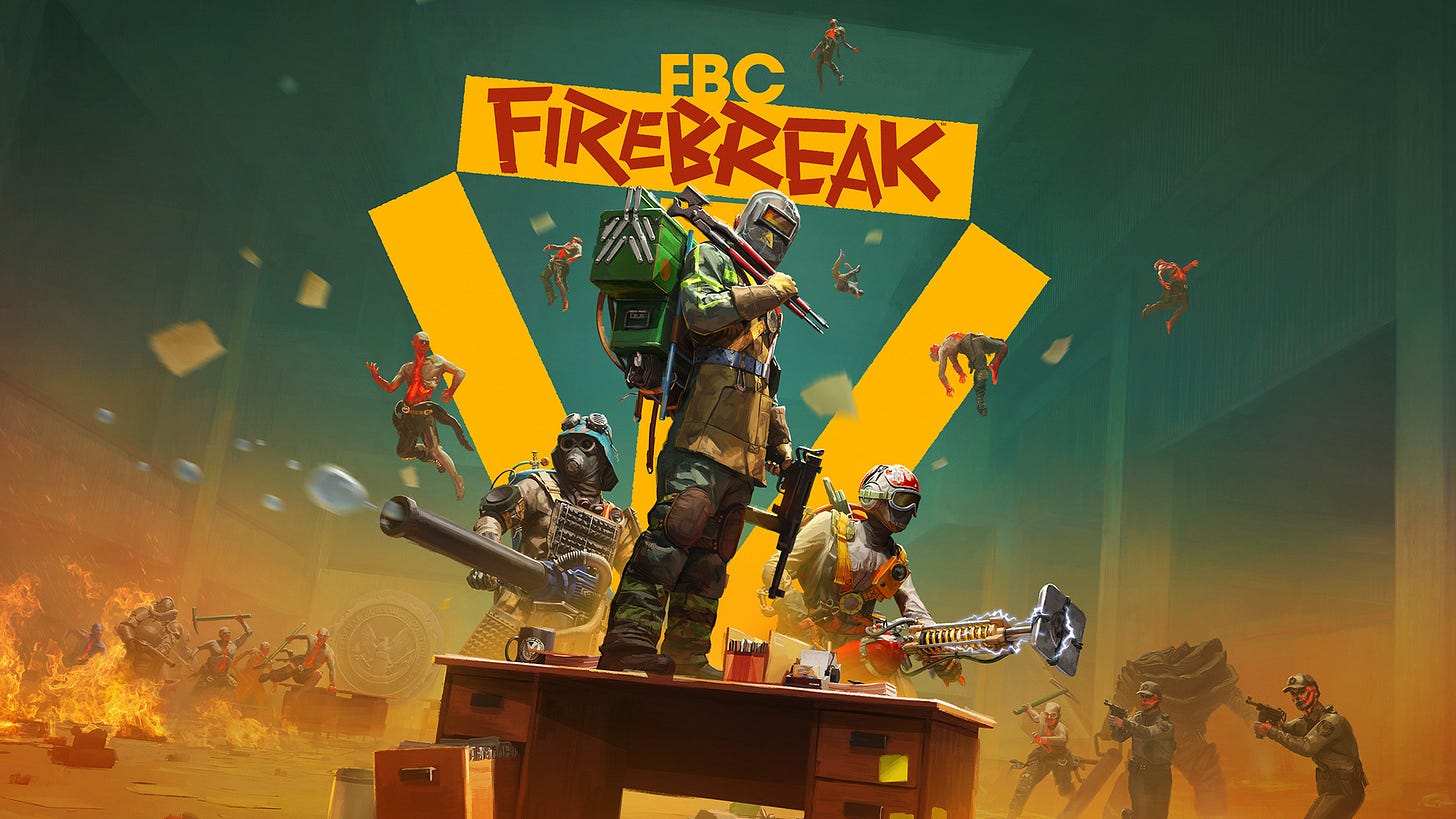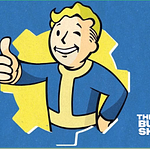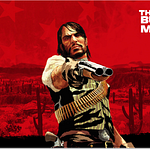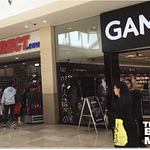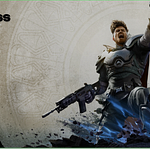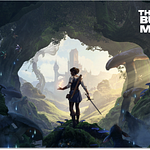Listen now on Apple, Spotify or YouTube
In This Edition
- UK Government backs games
- We speak to Ukie CEO Nick Poole
- Journalist George Osborn joins the show
- We analyse key June game market data
Hello there! Welcome back.
It’s been a tough few years for the British game industry. The impact of Brexit, mixed with the growing globalisation of our business, has meant that the post-COVID slump has hit the UK industry harder than most.
So it was with some relief that the UK Government pledged additional support to the industry last week, with a £30 million ($41 million) growth package.
In today’s episode of The Game Business Show, I look over the new support with our guest host George Osborn, who is the editor of the excellent Video Games Industry Memo. Plus, I speak to Nick Poole, the CEO of UK games trade body Ukie.
But it’s not all about the UK this week. George and I also discuss the closure of Hypixel Studios, and the performances of MindsEye, Splitgate 2, Rematch, Dune: Awakening and Peak.
Check out the full episode via the links above. Or alternatively, keep on reading for some of the choice quotes and data.
Enjoy!
Ukie boss: We need a growth mindset
UK games trade body Ukie has called on studios to start believing they can grow, after receiving significant backing from Government.
The UK Government has announced it will invest £30 million (around $41 million) in the UK industry, targeting young developers and early-stage studios. The support will also extend to tackling skills gaps and supporting the London Games Festival.
But perhaps just as significant as the financial backing is the formation of a UK Video Games Council, which will give the industry a regular, direct line to Government.
“This is a recognition that games aren't a sub-sector of TV and film,” UKIE boss Nick Poole told me in today’s episode of The Game Business Show. “We're not just an adjunct to other screen industries. We're an economic and a cultural force in our own right.”
He added: “We were seeing investment that was running through film. We were seeing regulation that was born somewhere else and being applied into games. Games are a unique intersection of creativity, technology and community. We don’t want be legislated for as an afterthought to anyone else. What these announcements do is they put games front and center as what they're calling a ‘frontier industry’, with an agenda all of our own. Once we've secured that recognition, we need to make sure it's safe beyond the lifetime of this parliament, and then we need to look at how we build on that for regulatory and financial support.”
Ukie is still pushing for improvements to the video games tax relief, but that will have to wait until later in the Autumn. Nevertheless, this is a strong start in terms of Government support, and it’s now on the UK industry, including VCs and small businesses, to invest in the sector.
“There's a lot of money accumulated in investment vehicles that investors are sitting on because they’ve had a fright, basically,” Poole said. “They aren’t seeing the VC returns that they were seeing 6, 7, 8 years ago. This [Government support] is a big vote of confidence. We need now to go out and encourage investors to meet that backing with their own investment.
“The other thing -- which I think we can help with but it's really on every single small developer -- is we need a growth mindset. We need to believe that we can scale these businesses. This only works if we go from the 12, 15 people making a moderately successful game, and we start to aspire to build 50 to 100 people teams that are making globally successful IPs and franchises.
“The big dialogue we want to have with the industry is… what's that scaling journey look like? How do we move from this very cautious approach? I've heard a lot in the industry recently about how I want to build a studio and create great games, but keep it at this level… let's believe in growth again. Let's aspire to growing these studios.”
“Where I don't want us to get to is the race to the bottom. You know, the AI-powered, reductive agenda of churning out endless clones of things because they were economically successful once”
Poole says he hopes the industry will start to recognise the importance of being an ecosystem.
“I'd like to get us to is a place where we act as an industry, where we have identifiably shared needs, we're able to lobby for our collective interests, that we use things like evidence and data to make the case for what we're doing, to really be acting and behaving as an ecosystem.”
He concluded: “Where I don't want us to get to is the race to the bottom. You know, the AI-powered, reductive agenda of churning out endless clones of things because they were economically successful once. Where we really excel is positioning the UK as a place of quality to make globally successful IPs and great innovative technologies and solutions that people want to deploy all over the world.
“I want us to raise our ambitions in terms of the quality, and the innovation. And not simply being part of the race to make as many games as possible for as little as possible, that monetize as fast as possible.”
You can check out our full interview with Nick Poole in the video podcast above.
June Games: MindsEye and Firebreak struggle, while Peak, Rematch and Dune soar
It was a hyper-competitive month for video games In June, with some big winners and losers.
MindsEye is the highest profile miss of the month. Build A Rocket Boy’s action game failed to impress critics or fans, and the studio has had to cut some of its team, with reportedly 100 roles at risk.
According to Ampere, the game has just shy of 250,000 players, with the majority (around 150,000) on PlayStation. The big concern is that there are just 35,000 Steam players according to Ampere. One of MindsEye’s more unique offerings is its user-generated content platform, which is only available to PC players.
There have also been some small undisclosed job cuts at Splitgate 2 developer 1047. Free-to-play shooter Splitgate 2 also launched in June and has an audience of around 4.9 million players, including 1.79 million on Xbox (Game Pass subscribers can receive bonus extras for the game), 1.68 million on PlayStation and 1.4 million on PC.
If we compare that with Delta Force, which is another recent free-to-play shooter, that game launched in December 2024 on PC only, and attracted a similar audience of 5.2 million players (Ampere data). However, Delta Force’s figures have fallen since, and it’s now at around two million monthly players.
Splitgate 2’s ultimate success will be on how many players stick around. It’s had a tricky start, with mixed critical and consumer reviews and dissatisfaction around the in-game monetisation. But it’s far from over for the title.
Elsewhere, Remedy’s FBC: Firebreak has had a tough start. According to Ampere, the game has just short of 800,000 players on Xbox and 541,000 players on PS5, with the game available on the Xbox Game Pass and the PS Plus Extra and Premium subscription services. On Steam (where it is a premium game only), Firebreak has only managed 54,000 players. User sentiment is also mixed, and Remedy has promised to improve the experience for players.
Away from the big shooters, there have been some more positive performances in June. One of the big ones is the football/soccer game Rematch, which was developed by Sloclap and published Kepler. Since its release on June 19, Rematch has sold 1m units and reached 3 million players, the company has announced. The online multiplayer game was available Game Pass, hence that high player number.
Ampere’s player estimates are higher. It says that 1.58 million are playing on Xbox, with the PS5 version on just below 800,000 users, and the PC version on 1.1 million. This is Kepler’s second smash hit in as many months, as it also published Clair Obscur: Expedition 33 in April, which sold 3.3 million copies in just over a month.
Elsewhere, Dune Awakening has opened to strong numbers. The Funcom game has been in development for around six years, and is a big budget survival multiplayer game, so it’s under some pressure to perform. Funcom has announced the game has shifted 1m copies, while Ampere says that the number has now exceeded 1.2 million.
And one final game that’s done really well is Peak. The indie game from Agro Crab and Landfall shot to the top of the Steam charts and delivered one million sales in a week. Ampere says it’s exceeded that now, with over 2.2 million players.
Peak is a climbing co-op game, with silly characters, and a comedy multiplayer concept that works well with friends, YouTubers and streamers. It’s also available for less than $10.
Coming up, Death Stranding 2 arrives on PS5 today, Donkey Kong and Tony Hawk return, Dreamhaven will release its live-service team-based ship combat game Wildgate, mech shooter Mecha Break and there’s also that twisted Pac-Man game Shadow Labyrinth, too.
Meanwhile…
Hypixel Studios will close due to struggles developing its ambitious Minecraft-like game Hytale. The studio, which is owned by Riot Games, had been hailed as one of Northern Ireland’s highest profile developers
Jagex has promised to fix RuneScape’s microtransactions after surveying its players. 42% of respondents to its MTX survey said they felt microtransactions detracted from the experience, with that number rising to 60% for ex-players. Meanwhile, 63% of ex-players said they would return if Jagex addressed concerns around XP-related microtransactions. The company will now launch a series of in-game experiments to test new ideas and get feedback from players
Microsoft has launched a VR headset… sort-of. Xbox has teamed up with Meta to create the Meta Quest 3S Xbox Edition. It will retail for $399,999 and include a custom 128gb MetaQuest 3S in Xbox colours, along with matching controllers, plus three-months access to Meta Horizon+ and Xbox Game Pass. It’s only available in limited quantities
Code Coven has announced its first wave of contributors to Aurora, which is its accelerator designed to support diverse studios. The accelerator aims to create sustainable, investible studios from day one, and is backed by Bia Innovate (financial expertise), Lee & Thompson (legal), Shred Capital (early-stage VC), Rhum HR (HR consultancy), and Uwu Biz (business consultants)
A Dutch class action lawsuit has been filed against Sony, accusing the firm of artificially inflating prices on the PlayStation Store. The lawsuit is from Dutch non-profit organisation Stichting Massaschade & Consument. The organisation has accused Sony of "abusing its dominant position" in console gaming in the country. It accuses Sony of having a monopoly over digital sales.
That’s it for today’s edition of The Game Business Newsletter and Show. Join us next week for our big interview with Sega, plus a look at the economic situation facing the US video game industry. Thank you for reading.





